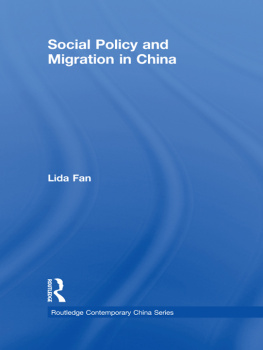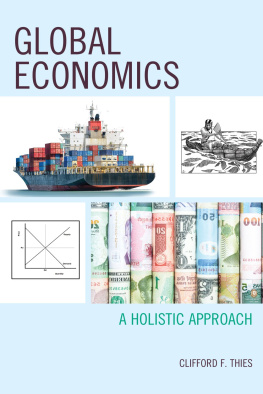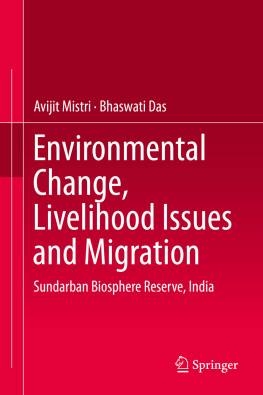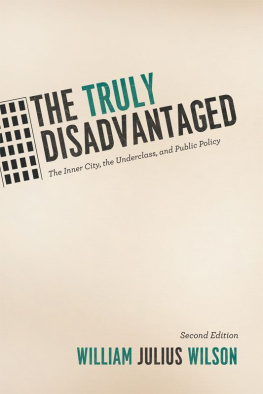The International Library of Sociology
ECONOMICS OF MIGRATION
Founded by KARL MANNHEIM
The International Library of Sociology
ECONOMICS AND SOCIETY
In 11 Volumes
| I | The Danube Basin and the German Economic Sphere
(The above title is not available through Routledge in North America) | Basch |
| II | The Economic Development of the Middle East | Bonn |
| III | Economics of Migration | Issac |
| IV | Economy and Society | Parsons and Smalser |
| V | The History of Economics | Stark |
| VI | The Ideal Foundations of Economic Thought | Stark |
| VII | The Political Element in the Development of Economic Theory | Myrdal |
| VIII | Population Theories and the Economic Interpretation | Coontz |
| IX | The Social Problems of an Industrial Civilization
(The above title is not available through Routledge in North America) | Mayo |
| X | Studies in Economic Development
(The above title is not available through Routledge in North America) | Bonn |
| XI | Transitional Economic Systems | Douglas |
ECONOMICS OF MIGRATION
by
JULIUS ISSAC
with an introduction by
SIR ALEXANDER CARR-SAUNDERS
First published in 1947
by Routledge, Trench, Trubner & Co., Ltd.
Reprinted in 1998, 1999, 2000, 2002
by Routledge
2 Park Square, Milton Park, Abingdon, Oxon, OX14 4RN
Transferred to Digital Printing 2007
Routledge is an imprint of the Taylor & Francis Group
1947 Julius Issac
All rights reserved. No part of this book may be reprinted or reproduced or utilized in any form or by any electronic, mechanical, or other means, now known or hereafter invented, including photocopying and recording, or in any information storage or retrieval system, without permission in writing from the publishers.
The publishers have made every effort to contact authors/copyright holders of the works reprinted in The International Library of Sociology.
This has not been possible in every case, however, and we would welcome correspondence from those individuals/companies we have been unable to trace.
British Library Cataloguing in Publication Data
A CIP catalogue record for this book is available from the British Library
Economics of Migration
ISBN 0-415-17526-7
Economics and Society: 11 Volumes
ISBN 0-415-17819-3
The International Library of Sociology: 274 Volumes
ISBN 0-415-17838-X
Publishers Note
The publisher has gone to great lengths to ensure the quality of this reprint but points out that some imperfections in the original may be apparent
THE main object of this study is to examine the causes and effects of the great international migrations which have taken place during the last hundred years. I have not attempted to estimate from past migratory trends the volume and nature of the movements which might be expected in the future. Such an attempt seemed to be inappropriate at the present moment, immediately after the end of the second world war, when the whole pattern of international relationships is being remoulded. I thought, however, it might be useful to draw some conclusions from past experience as to the contribution which a resumption of international migration might be able to make towards world reconstruction, and to discuss various measures likely to serve this end.
I gratefully acknowledge the great help in the preparation of this book by all who have read and criticized the manuscript or parts of it and have provided most valuable suggestions. To Sir Alexander Carr-Saunders I am greatly indebted for his unfailing encouragement and guidance throughout the work. In its earlier stages I had the privilege of Professor L. Robbins advice. I wish to express my thanks in particular to Mr. N. Kaldor and Mr. A. Radomysler for the stimulating discussion of various economic aspects of migration and to Mr. R. R. Kuczynski and Dr. L. I. Dublin for valuable suggestions on demographic questions. In dealing with conditions in the U.S.A. I greatly benefited from discussions with Professor E. F. Penrose of Stanford, and Professor J. Folsom of New York. A first version of this study has been approved by the University of London for the Award of the Ph.D.
J. I.
IT is impossible not to be aware of the importance of the movement of peoples in human history, but it is only of those movements which have taken place since the sixteenth century that we have any accurate knowledge. During the last four centuries the peoples of Europe have overflowed and have established themselves as the masters of new continents, and indeed as the sole inhabitants of large parts of these regions. In view of the interest and importance of these events, especially to the inhabitants of these islands whence so large a proportion of the migrants came, it is surprising that they have not been more thoroughly investigated. There is room for further historical study and also for closer sociological and economic analysis. It is to the latter field that Dr. Isaac offers his book as a contribution.
It is an appropriate moment for such a work. A definite phase in the story of European migration closed in 1914. Up to that date for some hundred years or so freedom of exit and entry had generally prevailed. Before 1914, there were signs of a change, but after 1918 we enter upon a new epoch in the story of these movements. Entry was no longer free and unimpeded; quotas and other devices severely restricted the number of those permitted to enter most countries of immigration. Government action was not limited to such countries; certain countries of emigration, Italy for example, set themselves to keep their people at home. Our government, after several decades of neutrality in the matter of emigration, resumed the policy of encouraging and assisting those who wished to take up residence in the Dominions. Though other countries were also not unfavourable to the emigration of their subjects, the net result of the measures taken was greatly to reduce the volume of movement which would otherwise have occurred.
Whatever may be said against the particular policies pursued between the two wars, as regards both the motives which inspired them and the results achieved, it may be urged that some governmental action in this field was justified and, perhaps, overdue. The movement of masses of people, whether out of or into a country, is not a matter in which any government, given the widened conception of governmental responsiblity now generally accepted, ought to disinterest itself. There is no reason to suppose, however, that there will be any return to unrestricted movement; it may, indeed, be taken for granted that such migration as will take place will be regulated.
The first need felt by those who wish to consider how a policy of regulation should be designed is knowledge of the recent growth and present trends of the populations concerned. Information on this subject has been greatly expanded in recent years; in particular, indices have been devised and are regularly published which give a measurement of the vital forces at work in many countries. No less important is the analysis of the economic aspect of migration movements. Too little attention has been paid to this side of the matter hitherto, especially in this country; we have become aware of the purely demographic facts of the situation, the sparsity and slow rate of increase of the populations of the Dominions, for instance, but we have not infrequently been content with discussions of measures of which the economic implications were neglected. These problems are treated by Dr. Isaac in some detail, and this is one of the features of his work which makes his book of real value. Lastly there are the numerous sociological problems involved, using that term in a wide sense. Here we are in contact with somewhat intangible issues, such as assimilation. Though generalization may be difficult, much may be learnt from a study of what has happened in different circumstances; assimilation, we find, is largely a matter of the attitude of the immigrants and of those among whom they have come to live.











